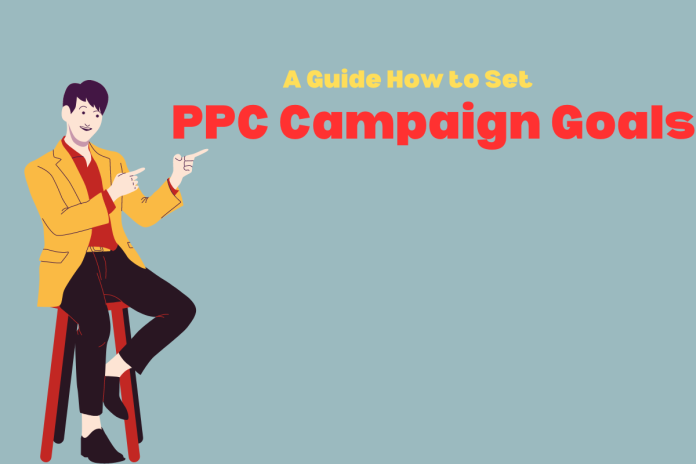A PPC campaign is essential to increase your brand’s exposure and customer base, particularly on platforms such as Google Ads. To achieve success, you need to plan strategically and set measurable goals. You can increase conversions by targeting specific audiences with search engine advertising and track your progress effectively. To gauge the effectiveness of your campaign, set objectives such as increasing click-through rates. This guide simplifies the process of setting PPC objectives, so you can manage a successful PPC campaign.
Why is goal setting important in PPC campaigns?
Setting goals and identifying negative keywords are essential for PPC campaigns just as they are in SEO or other digital marketing strategies. This is the first, most important step in determining the strategy and workflow for your online marketing. PPC management is ineffective without clear objectives. This complicates the measurement of overall success and business progress, as well as cost per click.
Focus on your business objectives before developing a PPC plan. This is important for determining your specific goals for paid ads campaigns, and the budget you allocate. Unlike other advertising platforms, PPC is a great way to advertise your services and products.
Setting PPC goals that are clear is important.
- Google Ads allows you to track the results and progress of your campaign.
- Learn what works for your business.
- Spend less money on ineffective strategies.
- Targeting the right audience will increase efficiency.
Setting precise goals is more than just launching a marketing campaign. It’s about optimizing the return on your investment and guiding it to measurable success.
How to Set Objectives for PPC Ads
Evaluating Your Business’s Unique Requirements
It’s important to consider what you want to achieve with paid search marketing before you begin your PPC campaign. What are your PPC objectives? Pay-per-click is essential for any business. Understanding this is the first step to creating a strategy that aligns with your goals.
Setting goals that are both realistic and aspirational
Set PPC goals that are clear, achievable, and yet challenging enough. Too simple goals may not be motivating. With strategic planning, data analyses, and determination, aim for goals that are challenging but still achievable.
Balancing Short-Term and Long-Term Objectives
PPC campaigns offer a range of timeframes for setting goals, including weekly and annual targets. Setting both immediate and long-term goals is beneficial. The short-term objectives provide benchmarks for immediate comparison, while the long-term ones offer insight into your PPC campaign’s overall performance. To facilitate an effective performance evaluation, ensure that the timeframes selected for comparison are similar.
Prioritizing your campaign’s end results
Rethink goals that are solely focused on mechanics. For example, adding a specific number of keywords. Focus on outcomes such as cost-per-acquisition reductions or sales increases. Plan your strategies to reach these goals. For example, you might aim to increase sales by a certain percentage over some time.
How to Choose the Right PPC Campaign
The choice of the right PPC campaign is crucial to connecting with your audience. For optimal results, Google Ads campaigns can be varied based on regular performance evaluations.
Consider these PPC campaigns:
- Display Ads Network Campaigns If you want to increase brand awareness, focus your efforts on reaching a wider audience. Find ways to encourage more positive interactions. PPC experts often suggest initiating promotional campaigns or highlighting top products in order to increase impressions. Use the Google Display Network to create powerful video and image ads. You can use these campaigns to display visual ads on social media and external websites. You can purchase video ads through different ad networks, and create them with multiple tools. Or you can consult a Google Display Network expert.
- Search Results Ads This is the most common form of PPC. These ads are displayed on the search results page. These ads are common on search engines such as Google and Bing. They often appear at the top of listings, attracting clicks from users when they search online.
- Remarketing strategies Use customer engagement to your shopping and remarketing campaigns. This type of campaign targets people who have already interacted with your brand through purchases, newsletter subscriptions, or website visits.
- Social media advertising A PPC strategy that is effective for attracting younger demographics such as Gen Z, Millennials, and Facebook users, social media campaigns are a great way to reach these groups.
- Google Shopping Campaigns for eCommerce Google Shopping campaigns are especially beneficial for eCommerce businesses. They feature your products in Google search results with images, prices, and short descriptions.
Implementing Goal-Setting Levels
A Complete Guide What is PPC Management should have different goals. Stretch goals are more ambitious than baseline goals. This tier-based approach will not only help you to direct your campaign, but also motivate your team. We’ll discuss the importance of this distinction in the discussion that follows.
Increasing Website Traffic
Suggested strategy: Increase Click-Through rates (CTR). PPC advertising provides measurable results primarily by tracking impressions and clicks. Set daily or weekly targets for impressions to track the impact of your campaign on brand awareness. CTR is an important metric that reflects the level of engagement with your ads.
Invest in engaging ads to drive website traffic. It involves thorough keyword research and a solid strategy for content marketing. The effectiveness of paid search ads is largely determined by the quality and relevance of their content.
Increase sales and lead generation
Suggested strategy: Improve conversion rates when you want to increase sales and leads. PPC conversion tracking can be used to analyze data and update your campaign regularly based on the insights. Consider reallocating the budget to a long-tail keyword that yields better conversions.
The following are key steps for increasing conversions:
- Focus on high-converting keywords: Keyword analysis is an integral part of your bid strategy. Make sure to focus on keywords that convert and analyze their performance.
- Manage negative keywords: Monitor your CTR regularly and identify non-converting keywords to set as Negatives. It is important to monitor your campaign consistently.
- Refine Your Landing Pages: Conversions are largely dependent on the effectiveness of your pages. They should be simple, engaging and designed for conversion.
Enhance Brand Recognition
Suggested strategy: Leverage Display Networks and Remarketing to boost brand awareness. Focus on reaching a wider audience and encouraging positive interactions. PPC experts recommend using promotions and highlighting top products to boost impressions.
Use the Google Display Network to create creative display campaigns, and then identify sites that are relevant for distribution. Choose visually appealing formats such as videos and images to create an impact. Placement targeting can help maximize exposure if budget is an issue. To track and measure the effectiveness of your campaign, it is important to use key metrics such as impressions, reach, and frequency.
Promotional Campaigns
Promoting your business can be very effective, especially when you introduce limited-time offers, contests, or discounts on services. Use exclusive codes, or create a sign-up page. This allows you to monitor traffic to your site specifically from these promotional ads.
How to Evaluate the effectiveness of your goals
Any digital marketing campaign must include a continuous analysis of your progress toward your goals. Not only is it important to reach your goals, but you also need to understand the factors that led to them. This is a valuable learning experience that will help you refine your strategies and improve them over time.
Last Thoughts
While your goals may be similar to others, keep in mind that each business is unique and requires custom strategies specific key performance indicator (KPI) measures. Verbsz Marketing recommends a well-defined workflow to make the process more efficient and save time, effort, and resources. Before choosing a PPC campaign management company, evaluate your goals and make sure the campaign matches your unique business needs. Google’s search network is a great way to increase brand exposure.
If you are unsure about the campaign objectives, or your overall digital marketing strategy, speaking with an expert in paid advertising from Verbsz Marketing can provide valuable advice.



















